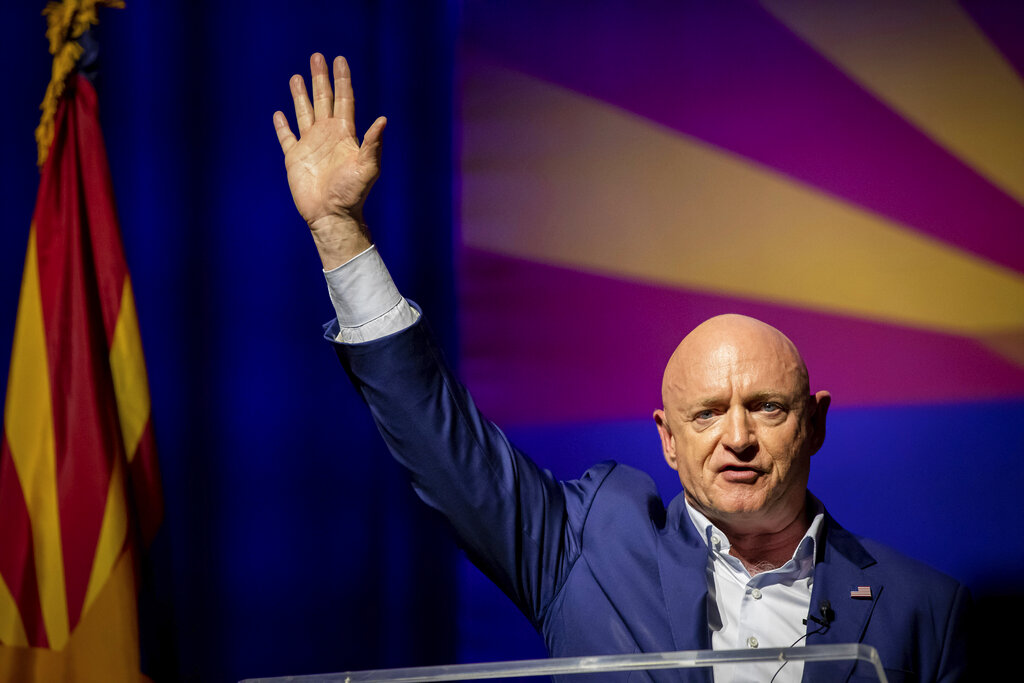
“Relief. Excitement. Hope. A fantastic day for all of us.’’
That’s how Dr. Colleen Kelley of Emory University School of Medicine described her reaction to preliminary results announced Monday by the biotech company Moderna about its COVID-19 candidate vaccine.
The Massachusetts-based company said its clinical trial has shown the vaccine to be apparently 94.5 percent effective against the virus.
Emory has been a major participant in the Moderna trial, enrolling about 700 volunteers at three centers in Atlanta. Kelley, the principal investigator for the Moderna study at the Ponce de Leon Center, said the results are “a great day for science.”
The Moderna vaccine efficacy follows early data reported last week by Pfizer, which said its candidate protected more than 90 percent of those who received it.
The good vaccine results are welcome news to a nation reeling from skyrocketing COVID infections in recent days. Some states and municipalities have installed new restrictions to stop the virus spread.

Dr. Anthony Fauci, the nation’s top infectious disease specialist, said Sunday that even with an effective vaccine, 200,000 more Americans could die by spring if the public does not embrace public health measures more fully.
Fauci said Monday that the new vaccine data “are obviously very exciting results. It’s just as good as it gets — 94.5 percent is truly outstanding.”
The vaccines probably won’t be widely available for several months.
The results, though, put both companies on track to seek permission within weeks for emergency use in the United States, the Associated Press reported. If U.S. regulators allow emergency use of Moderna’s or Pfizer’s candidates, there will be limited, rationed supplies before the end of the year. Both require people to get two shots, several weeks apart.
Health care workers and first responders are expected to get the initial doses.
Moderna expects to have about 20 million doses, earmarked for the United States, by the end of 2020. Pfizer and its German partner BioNTech expect to have about 50 million doses globally by year’s end.
Pfizer and Moderna, which are both American companies, have numerous competitors in the vaccine effort. Ten other companies are conducting big Phase 3 trials in a global race to produce an effective vaccine, including efforts in Britain, China, Russia, India and Australia, the New York Times reported. More than 50 other candidates are in earlier stages of testing.
In Moderna’s first interim analysis, 95 people came down with COVID-19, 90 of whom received the placebo. Eleven people – all in the placebo group – developed “serious” cases of the disease.
Among the 95 who fell ill, 15 were over 65, 12 were Hispanic, four were African-American, three were Asian and one was self-described as multiracial, according to a company news release. Moderna enrolled 30,000 volunteers, while Pfizer had 44,000.
Kelley and Dr. Nadine Rouphael, interim director of the Hope Clinic of Emory Vaccine Center, said Monday that the vaccine coordinators worked hard to include communities of color. These groups have been disproportionately hit by COVID-19 and are often not adequately represented in scientific research.
The effort and resources put into vaccine development “is really unfathomable,’’ Kelley said. “No steps have been skipped.”
 Rouphael added that what’s needed is for the American public and global community to be willing to take the vaccine. She added that a vaccine trial for children is expected to begin next year.
Rouphael added that what’s needed is for the American public and global community to be willing to take the vaccine. She added that a vaccine trial for children is expected to begin next year.
The Moderna vaccine has a key advantage over Pfizer’s, CNN reported.
Pfizer’s vaccine has to be kept at minus 75 degrees Celsius — or about minus 103 degrees Fahrenheit. No other vaccine in the nation needs to be kept that cold, and doctors’ offices and pharmacies do not have freezers that go that low.
Moderna’s vaccine can be kept at minus 20 degrees Celsius, which is about minus 4 degrees Fahrenheit. That means Moderna’s vaccine can be kept in “a readily available freezer that is available in most doctors’ offices and pharmacies,” said Dr. Tal Zacks, Moderna’s chief medical officer, according to CNN. “We leverage infrastructure that already exists for other marketed vaccines.”
Another advantage of Moderna’s vaccine is that it can be stored cold for 30 days, the company announced Monday. Pfizer’s vaccine can last only five days when stored cold.






